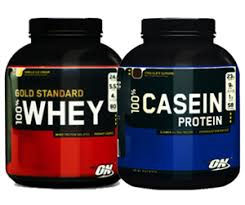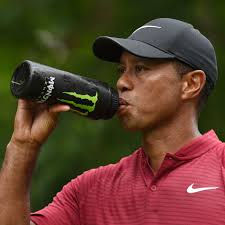The Best Way to Build Muscle
- schmidttm6
- Oct 15, 2020
- 3 min read
Eat protein. It's that simple. And for athletic performance it's very important. To begin, we must understand what protein does for our body. Protein not only builds and repairs muscles, but also promotes hair and fingernail growth, boosts your immune system and replaces red blood cell (red blood cells carry oxygen to your muscles and allows them to function properly).
During conditioning, resistance training and competition, our muscles are broken down and microtearing (don't worry, this type of tearing is good) occurs. Amino acids, the building blocks of protein, allow for these microtears to be repaired. This is how we build muscle.
Let's just say, hypothetically, you're not getting enough protein throughout the day. What happens then? If you're not consuming enough protein, your body isn't going to be able to repair those muscles and will begin to break down. Let's compare it to a sprained ankle. Are you going to continue to practice through that injury? Your answer should be no. And what happens if you do decide to train with an injury? It will likely get worse. For it to heal, you take the proper steps toward recovery, whatever that may be. To help your muscles repair from microtears, you must also take proper steps toward recovery. This is where protein comes into play.
Proper consumption of protein >>> Repaired microtears >>> Muscle growth
However, for an athlete getting an appropriate amount of calories, more protein does not mean more muscle. Our bodies are only capable of using so much protein. So, what happens to the rest? The leftover protein will get stored as fat. For some athletes and some sports, this may become an issue.
If too little protein will break down my muscles and too much will store as fat, then how much do I need?
DISCLAIMER: Not all athletes require the same amount of macros. Your macros will vary depending on body weight/composition, intensity level, duration of training and training cycle. This does not ensure that you will lose fat, maintain weight or gain muscle. For best results, it's suggested to eat every 3-5 hours over multiple meals (1).Macronutrients (macros): the nutrients our body needs, in larger amounts, in order to function properly (protein, carbohydrates and fats).
Each individual requires their own specific amount of protein, and it becomes more complex when dealing with different athletes and sports. The daily protein needs of an athlete is 1.2-2.0 g/kg per day. As training intensity increases, protein consumption increases. In cases of sudden inactivity, such as injury, protein consumption may increase as high as 2.0 g/kg or more, per day in order to prevent muscle mass loss (2).
Daily needs of protein per day: 1.2 to 2.0 g/kg of body weight (2)
Daily need of protein per meal: ~0.3 g/kg of body weight every 3-5 hours (3)
Pounds (lbs) to Kilogram (kg) Conversion:
Body weight (lbs) ÷ 2.205 = Body weight (kg)
Calculation Example: 135 lbs soccer player
135 lbs ÷ 2.205 = 61.2 kg
61.2 kg x 1.4 g = 86 g of protein per day
86 g ÷ 5 meals = 17 g of protein per meal
Split up your calculated grams of protein into 4-6 meals (every 3-5 hours), emphasizing more protein in your post-workout meal, to get optimal results (2, 3).
Protein for Athletes During a Caloric Restriction
A caloric restriction is the reduction of calories consumed in a day. In order to lose body fat, you must burn off more calories than you eat. Some athletes that need to be cautious about their weight (i.e. wrestlers, weightlifters, powerlifters, etc.) may need to be in a calorie deficit at some point in their athletic career. If done without caution, not only will fat loss accord, but also muscle loss. If consuming too few calories, protein consumed will be used for fueling the body rather than repairing the muscles. Below is a table that will show an appropriate adjustment of protein intake.

(Table 7.1, Clark)
Resources
Thomas, T. D., Erdman, K. A., & Burke, L. M. (December 2015). Nutrition and Athletic Performance. Medicine and Science in Sports and Exercise. 543-568. doi: 10.1249/MSS.0000000000000852
Dr. Gregory Brown, (personal communication, August 27, 2020).
Clark, N. (2020). Protein: Building and Repairing Muscle. In Moore, D.J., Baur, M. & Mrozek, A.E (Eds.), Nancy Clark's Sports Nutrition Guidebook.
.png)



Comentários